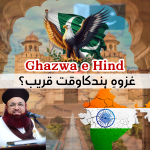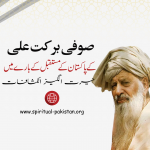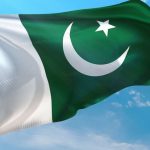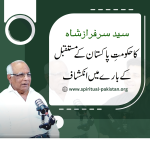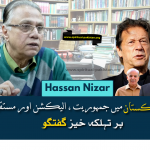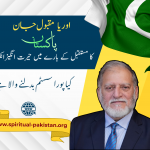(Islamic Empires : Lessons for Pakistan Progress)
اسلامی سلطنتوں کا عروج و زوال اور پاکستان کی ترقی
اسلامی سلطنتوں کا عروج و زوال
نبی اکرم صلی اللہ علیہ و آلہ وسلم کی بعثت کے بعد اسلامی دنیا میں کئی عظیم سلطنتوں نے عروج پایا، جن میں راشدین، اموی، عباسی، اور عثمانی خلافتیں شامل ہیں۔ ان سلطنتوں نے اسلامی تعلیمات کو دنیا بھر میں پھیلایا اور بڑے جغرافیائی علاقے فتح کیے۔ ہر سلطنت نے اپنے دور میں قابل ذکر فتوحات حاصل کیں، جیسے اموی خلافت نے اسپین اور شمالی افریقہ کو اپنے زیر نگین کیا اور عباسی خلافت نے سائنسی، فلسفیانہ، اور ثقافتی ترقی میں اہم کردار ادا کیا۔
فتوحات اور استحکام .I
اسلامی سلطنتیں نہ صرف عسکری طاقت بلکہ انتظامی حکمت عملیوں کی بنیاد پر وسیع ہوئیں۔ ان فتوحات نے مسلم دنیا کو وسیع اور مختلف ثقافتوں کا مرکز بنایا۔ سلطان محمود غزنوی جیسے حکمرانوں نے اپنی فتوحات اور حکمرانی سے اسلامی تاریخ پر گہرا اثر ڈالا۔
زوال کی وجوہات .II
بڑی اسلامی سلطنتوں کا زوال داخلی انتشار، بدعنوانی، اور بیرونی حملوں کی وجہ سے ہوا۔ عباسی خلافت کی ٹوٹ پھوٹ منگولوں کے حملے سے شروع ہوئی، جبکہ عثمانی سلطنت پہلی جنگ عظیم کے بعد تحلیل ہو گئی۔ ان سلطنتوں کے زوال نے اسلامی دنیا کو چھوٹی ریاستوں اور نئی سلطنتوں میں تقسیم کر دیا۔
Islamic Empires : Lessons for Pakistan Progress تاریخی اور سماجی تناظر
اسلامی فتوحات کے دوران اور اس کے بعد مختلف سماجی اور ثقافتی تبدیلیاں رونما ہوئیں۔ لباس، سماجی ڈھانچے، اور معاشرتی اصولوں میں وقت کے ساتھ تبدیلیاں آئیں۔ اسلامی دنیا میں روایتی لباس اور طبقاتی نظام نے معاشرتی نظام کو قائم رکھا۔ صنعتی انقلاب سے پہلے کے سماجی اصول، جو دنیا کے دیگر خطوں میں بہت تیزی سے تبدیل ہو رہے تھے، پاکستان میں کم نمایاں نظر آئے۔
Lessons for Pakistan Progress سماجی ڈھانچے میں تبدیلیاں
پری انڈسٹریل سوسائٹی میں لوگوں کا سماجی مقام ان کے لباس اور پیشے سے منسلک تھا، اور اسلامی دنیا میں مذہبی اور ثقافتی اثرات کے تحت سماجی ترتیب قائم رہی۔ صنعتی انقلاب کے بعد مغربی دنیا میں شہریکاری اور نئی سماجی طبقات کی تشکیل ہوئی، مگر پاکستان میں ایسی تبدیلیاں اتنی نمایاں نہیں ہوئیں۔
Lessons for Pakistan Progressفکری اور تعلیمی چیلنجز
اسلامی تاریخ میں علم کا ایک سنہری دور رہا جس میں اسلامی دنیا میں فلسفہ، سائنس، اور طب کی ترقی ہوئی۔ تاہم، جدید دور میں تعلیمی اور فکری ترقی میں کمی کے مسائل پاکستان اور مسلم دنیا کو درپیش ہیں۔
تعلیمی نظام کی خامیاں
پاکستان میں تعلیمی نظام کو معیار اور رسائی کے حوالے سے کئی چیلنجز درپیش ہیں۔ تعلیم کی موجودہ حالت میں بہتری کی ضرورت ہے تاکہ ملک عالمی معیار کے مطابق ترقی کر سکے۔ تعلیمی نظام میں اصلاحات کی ضرورت ہے تاکہ یہ بہتر طور پر سائنسی اور عصری علوم کے مطابق ہو۔
سائنسی اور مذہبی علم کا موازنہ
پاکستان میں اسلامی نصوص کی جدید سائنسی علم کے ساتھ ہم آہنگی کے حوالے سے بھی تنقید کی جاتی ہے۔ قرآن کی تفہیم کو جدید سائنسی علوم کے ساتھ موازنہ کرنے کی ضرورت پر زور دیا جاتا ہے تاکہ تعلیمی اور فکری ترقی کو فروغ دیا جا سکے۔
پاکستان کی قومی ترقی اور چیلنجز
پاکستان کی تاریخ میں محمد علی جناح جیسی شخصیات کا اہم کردار رہا ہے، جنہوں نے برصغیر کے مسلمانوں کے لیے ایک الگ ملک کی بنیاد رکھی۔ جناح کا ویژن جمہوریت، برابری، اور خود مختاری پر مبنی تھا، مگر آزادی کے بعد پاکستان کو مختلف سیاسی اور تعلیمی چیلنجز کا سامنا رہا۔
محمد علی جناح کا ویژن
محمد علی جناح نے پاکستان کو ایک فلاحی اور خود مختار ریاست بنانے کا خواب دیکھا، جہاں مسلمان اپنے مذہب اور ثقافت کے مطابق زندگی گزار سکیں۔ لیکن پاکستان کی سیاسی قیادت میں وقت کے ساتھ تبدیلیاں اور مختلف مشکلات کی وجہ سے اس ویژن کی تکمیل میں مشکلات پیش آئیں۔
Lessons for Pakistan Progress سیاسی اور تعلیمی مسائل
پاکستان میں بدعنوانی اور غیر مؤثر قیادت کے مسائل نے سیاسی نظام کو کمزور کیا ہے۔ سیاسی نظام میں شفافیت اور اصلاحات کی ضرورت ہے تاکہ ملک کی ترقی کو ممکن بنایا جا سکے۔ تعلیمی نظام میں اصلاحات اور بہتری کے مطالبات بھی وقت کے ساتھ بڑھ رہے ہیں۔
Islamic Empires : Lessons for Pakistan Progress مستقبل کا منظر نامہ
پاکستان کے مستقبل کے حوالے سے امید کی جاتی ہے کہ زیادہ ایماندار اور مؤثر قیادت سامنے آئے گی، جو ملک کی ترقی کو حقیقی معنوں میں فروغ دے گی۔ سیاسی اور تعلیمی نظام میں بہتری کے ذریعے پاکستان کو ایک مستحکم اور ترقی یافتہ ملک بنایا جا سکتا ہے۔
اصلاحات کی ضرورت
پاکستان میں خود شناسی، گورننس، اور بنیادی اقدار کی پاسداری کی ضرورت ہے تاکہ سیاسی اور تعلیمی نظام میں اصلاحات کی جا سکے۔ یہ اصلاحات ملک کی ترقی کے لیے ضروری ہیں۔
بہتر مستقبل کی امید
پاکستان میں زیادہ موثر قیادت اور شفاف سیاسی و تعلیمی نظام کی توقعات وابستہ ہیں۔ ملک کے سیاسی اور تعلیمی ڈھانچوں میں بہتری کی کوششیں جاری ہیں تاکہ ملک کی ترقی کو یقینی بنایا جا سکے۔
نتیجہ
اسلامی سلطنتوں کی تاریخ اور ان کے زوال سے یہ سبق ملتا ہے کہ سیاسی استحکام، علمی ترقی، اور سماجی تنظیم ایک کامیاب قوم کی بنیاد ہیں۔ پاکستان کی ترقی کے لیے تعلیمی اور سیاسی اصلاحات، اور زیادہ شفاف قیادت کی ضرورت ہے۔
Islamic Empires : Lessons for Pakistan Progress
The Rise and Fall of Islamic Empires Islamic Empires : Lessons for Pakistan Progress
After the prophethood of the Holy Prophet Muhammad (PBUH), several great empires in the Islamic world rose to prominence, including the Rashidun, Umayyad, Abbasid, and Ottoman caliphates. These empires spread Islamic teachings across the world and conquered vast geographical territories. Each empire achieved remarkable conquests in its era, such as the Umayyad Caliphate’s expansion into Spain and North Africa, and the Abbasid Caliphate’s pivotal role in scientific, philosophical, and cultural advancements. Islamic Empires : Lessons for Pakistan Progress
1. Conquests and Stability Islamic Empires : Lessons for Pakistan Progress
Islamic empires expanded not only through military power but also by strategic administration. These conquests made the Muslim world vast and diverse, attracting various cultures. Rulers like Sultan Mahmud of Ghazni had a profound impact on Islamic history through their conquests and governance.
2. Causes of Decline
The fall of major Islamic empires was caused by internal strife, corruption, and external invasions. The Abbasid Caliphate’s decline began with the Mongol invasion, while the Ottoman Empire disintegrated after World War I. The collapse of these empires divided the Islamic world into smaller states and ushered in new rulers.
Historical and Social Context
During and after the Islamic conquests, various social and cultural changes took place. Changes in clothing, social structures, and societal norms occurred over time. Islamic society maintained a traditional dress code and class system. While the Industrial Revolution sparked significant social changes in other parts of the world, such changes were less prominent in Pakistan.
1. Changes in Social Structures
In pre-industrial societies, social status was linked to clothing and occupation, and in the Islamic world, social order was influenced by religious and cultural norms. In the West, urbanization and the formation of new social classes followed the Industrial Revolution, but such shifts were less apparent in Pakistan.
Intellectual and Educational Challenges
The Islamic world experienced a golden age of knowledge, with remarkable advancements in philosophy, science, and medicine. However, in the modern era, Pakistan and the broader Muslim world face challenges in intellectual and educational development.
1. Flaws in the Education System
Pakistan’s education system faces challenges in both quality and accessibility. There is a need to improve the current state of education so that the country can compete globally. Reforms are required to align the education system with scientific and contemporary knowledge.
2. Comparing Scientific and Religious Knowledge
In Pakistan, there is also criticism regarding the alignment of Islamic texts with modern scientific knowledge. Emphasis is placed on understanding the Quran in the light of contemporary science to foster intellectual and educational progress.
National Development and Challenges in Pakistan
In Pakistan’s history, figures like Muhammad Ali Jinnah played a crucial role in establishing a separate country for the Muslims of the Indian subcontinent. Jinnah’s vision was based on democracy, equality, and self-determination, but Pakistan faced various political and educational challenges after independence.
1. Muhammad Ali Jinnah’s Vision
Jinnah envisioned Pakistan as a welfare state where Muslims could live according to their religion and culture. However, due to changing political leadership and various difficulties, the full realization of this vision has faced challenges.
2. Political and Educational Issues
Pakistan’s political system has been weakened by corruption and ineffective leadership. There is a need for transparency and reforms in the political system to enable the country’s progress. Similarly, demands for reforms and improvements in the education system have grown over time.
Future Outlook Islamic Empires : Lessons for Pakistan Progress
Looking towards the future, there is hope for more honest and effective leadership in Pakistan that can genuinely drive the country’s development. Through improvements in the political and educational systems, Pakistan can become a stable and prosperous nation.
1. Need for Reforms
In Pakistan, there is a need for self-reflection, good governance, and adherence to fundamental values to bring about reforms in the political and educational systems. These reforms are essential for the country’s progress. Islamic Empires : Lessons for Pakistan Progress
2. Hope for a Better Future
There are high expectations for more effective leadership and a transparent political and educational system in Pakistan. Efforts continue to improve the country’s political and educational structures to ensure its growth.
Conclusion
The history of Islamic empires and their decline teaches us that political stability, intellectual progress, and social organization are the foundations of a successful nation. For Pakistan’s development, educational and political reforms, along with more transparent leadership, are essential.
Islamic Empires : Lessons for Pakistan Progress
Source:


